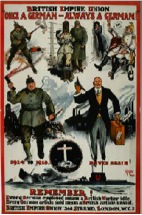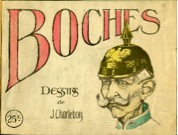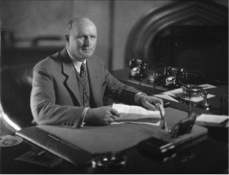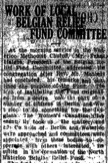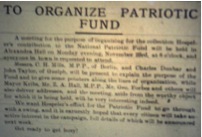On 5 November, Ottawa declared that all German and Austrian residents of Canada had to register with the government. This declaration was of significance to some residents of the Waterloo Region. The government explained that this was an exercise to gain a level of control over the presence of aliens within Canadian borders for the public’s sake. Individuals, who failed to address the registrars or botched their interrogation, would then be transported to prisoner of war camps. Registrars questioned nationality, nature and intentions along with individuals’ current situation or status in Canada. People of German or Austrian birth also had to pass a registrar examination if they wished to leave the country whether as a civilian or enlisted in the Canadian Army. The Canadian Government’s official statement on the matter was as follows:
“The order-in-Council passed by the Government has for its object to ensure an effective control and supervision over persons of alien enemy nationality residing in the country. In enacting it, the Government realizes that there is a very large proportion of these residents who are perfectly peaceable citizens, and in no sense a source of danger to the country…”
(Photo courtesy of the Canadian War Museum; “Enemies of the State,” Hespeler Herald, 5 November 1914)
